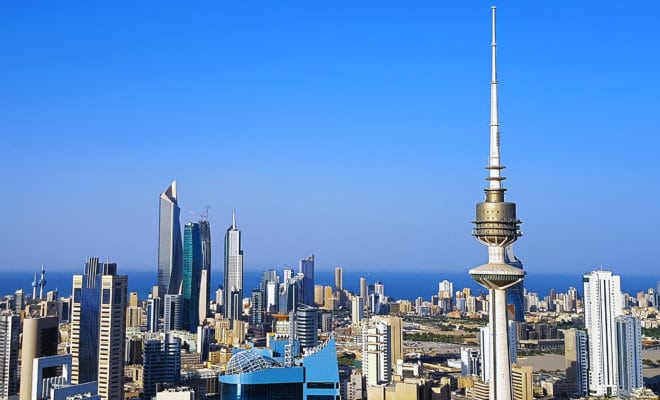Immigration
Kuwait Extends Amnesty Period for Illegal Immigrants

Kuwait City
Photo: Bigstock
The Ministry of Interior of Kuwait has extended the amnesty period for two more months from Feb. 23 to April 22.
The Ministry of Interior of Kuwait on Feb.20 extended the amnesty period for two more months for those who have violated the residency law. The illegal immigrants will have to either leave the country or revise their residency status during this period. The extended amnesty period will begin from Feb.23 and end on April 22.
An official circular, which carried the signature of Interior Minister Sheikh Khaled Al-Jarrah Al-Sabah, announced the details of the extension, the Arab Times reported.
The decision was taken so that those who have violated the residency law could get more time to resolve their status, and to benefit those who have not been able to obtain travel documents from their embassies.
According to the Amiri decree on amnesty, residency violators can exit from the country without paying any fines for overstay or facing a punishment. It also permits them to return to the country if they are able to get a new work permit.
As many as 3,632 residency violators left the country or legalized their status in the first six days of the amnesty, according to statistics revealed by the Interior ministry earlier in February, reports said. The total number of residency violators was over 125,500 before the amnesty, however on Jan. 29 after the amnesty came into effect, the figure went down to around 122,000.
“The top five countries whose nationals are in violation of residency laws are India, with over 32,000 violators–1,183 of whom have left, Egypt with 10,700 violators (647 have left); Philippines with 11,800 (366 have left); Bangladesh with 25,000 (280 have left); and Syria with 6,900 violators (235 have left or legalized their status),” Col Hamad Rasheed Al-Twalah, general director of the central department for residency and entry and exit procedures, had said earlier this month, according to Kuwait Times.
The decision to allow amnesty was taken in January this year. It stated that all expats who don’t have residence permits or expired residence should leave the country during the stipulated time period through official exit channels. The procedures should be executed at the exit points and no approval from any other authority is required.
There are 3.1 million expatriates in the country against around 1.4 million nationals, according to the population figures by the Public Authority for Civil Information. Initial reports suggested that around 100,000 expatriates had been living in Kuwait without legal residence permits, reported Kuwait Times.
Murlidhar Reddy, a Kuwait-based social activist is hopeful that the latest move by the Kuwait government will make many expatriates seeking amnesty in the gulf country heave a sigh of relief, reported the New Indian Express. Unpaid mobile bills were making many immigrants face a travel ban and had become a pain point for them.
Migrant workers in Kuwait buy mobile phones after they get approval from their employers, and many a time, it is registered in someone else’s name, who helps them buy the phone. This person has an identical ID number and there are chances that it may be misused. In many instances, when these workers try to sell the phone to another person for some extra cash, they realize that the phone bills are high. If they cannot pay it back, a ban is imposed on them
A circular was sent to all the departments of the Residency Affairs Department of Ministry of Interior, giving them instructions to allow domestic workers who have been registered as absconding by their sponsors to transfer to a new sponsor without prior permission of the original employer. According to the decision, the new sponsor would have to pay all the fines, if there were any, registered against the helpers.



